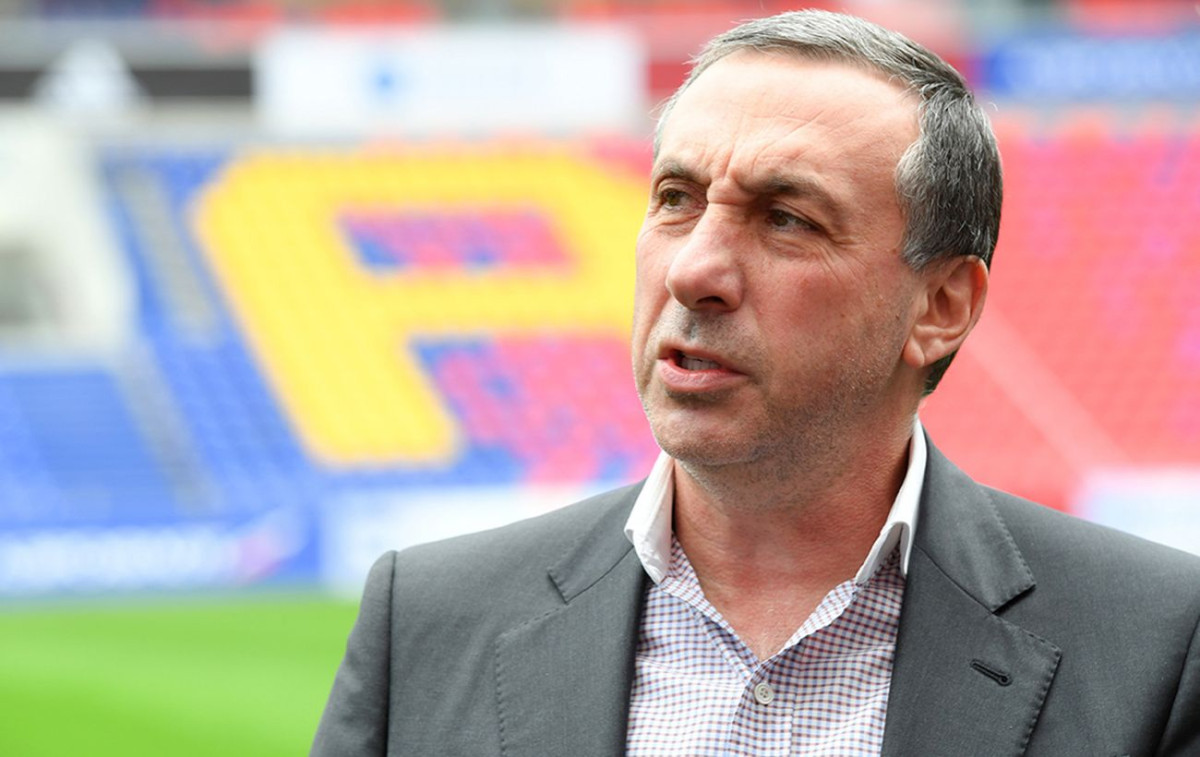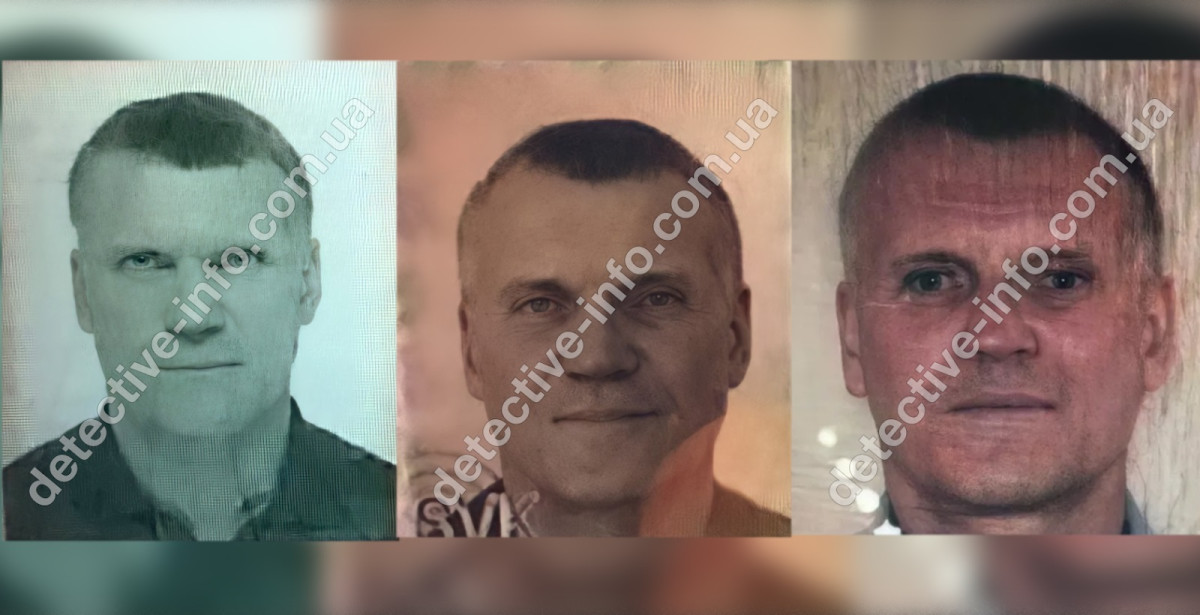

For more than six months, the High Anti-Corruption Court has been hearing cases of asset confiscation related to the VS Energy group of energy companies.
The beneficial owners of this group are the sanctioned Russian oligarchs Yevgeny Giner, Mikhail Voevodin, and Alexander Babakov. The asset confiscation in this case covers corporate rights in 8 regional electricity distribution companies (oblenergos), 6 hotels, 2 metallurgical plants (Dniprospetsstal and the Cutlery Plant — DSS), a shopping center, and 31 other companies.
Who are these people? What influence do they have on these companies, and why is it complicated to hear cases of confiscation of these assets?
What do we know about the Russian oligarchs Giner, Voevodin, and Babakov?
First of all, all three beneficial owners are long-time supporters of Vladimir Putin, as directly evidenced by the data from their biographies.
Yevgeny Giner is the head of the Finance Committee of the Russian Football Union and the CSKA football club, which was previously subordinate to the Russian Ministry of Defense. In the past, Giner was the vice-speaker of the Russian Federation Council, and now he is a member of the State Duma Committee on International Affairs and Putin’s special representative for interaction with compatriots’ organizations abroad.
Yevgeny Giner
Mikhail Voevodin is a crime boss recognized by Interpol. He is known for his ties with criminals, in particular, his participation in raider seizures of enterprises, threats of physical violence, violent protests, and assaults. According to journalists, Voevodin organizes schemes to withdraw funds from Russia to foreign countries with their subsequent cash-out, including using a controlled financial institution.
Mikhail Voevodin
Oleksandr Babakov is Deputy Chairman of the State Duma of the Federal Assembly of the Russian Federation. He publicly expressed support for the death penalty to citizens of foreign countries who opposed the aggression of Russia against Ukraine and also called for the Azov Regiment to be recognized as a terrorist organization. He is included in the sanctions lists of the EU, USA, Canada, Switzerland, Australia, Japan, etc.
Alexander Babakov
VS ENERGY INTERNATIONAL N.V. itself is registered in the Netherlands, but through the Ukrainian company VS Energy International Ukraine LLC owns significant assets in Ukraine in the fields of energy, metallurgy, and finance.
In particular, this company owns 5 regional electricity distribution companies (oblenergos): Khersonoblenergo, Kirovohradoblenergo, Zhytomyroblenergo, Rivneoblenergo, and Chernivtsioblenergo. VS Energy International Ukraine LLC has corporate rights in three more oblenergos: Sevastopolenergo, Khmelnytskoblenergo, and Mykolaivoblenergo.
In addition, VS ENERGY owns Premier and Accord Hotels, First Investment Bank, Metropolis and Metrograd shopping centers in Kyiv; the list of such property is not exhaustive.
Our journalists, public officials, and law enforcement agencies are well aware of such a powerful set of assets of the Russian VS ENERGY, but this property has not yet been confiscated in favor of Ukraine.
VS ENERGY INTERNATIONAL N.V. owns 5 regional electricity distribution companies (oblenergos). In addition, VS ENERGY owns Premier and Accord Hotels, First Investment Bank, Metropolis and Metrograd shopping centers in Kyiv.
What prevented the confiscation of the property of Russian oligarchs in Ukraine?
The official beneficiaries of the assets of VS Energy International Ukraine are the citizens of Germany and Latvia Valts Vigants, Oleh Sizerman, Natalia Selivanova, Maryna Yaroslavska, Arturs Altbergs and Vilis Dambins.
According to Panama Papers documents, Latvians Vilis Dambins and Valts Vigants have repeatedly acted as Babakov’s trustees in his business in the West. Ukrainian journalists described in detail the long history of their ties to Babakov and other Russian oligarchs. In addition, another beneficiary, Maryna Yaroslavska, is the wife of Yevgeny Giner.
Criminal proceedings were opened by the State Bureau of Investigation before the Ministry of Justice filed a lawsuit for confiscation of assets with the HACC within the framework of the sanctions process against the beneficiaries of VS Energy International Ukraine. The SBI charged these persons with:
- misappropriation of property by a group of persons or taking possession of it by abuse of office (Part 3 of Art. 191 of the Criminal Code of Ukraine),
- trespass by a group of persons against the territorial integrity and inviolability of Ukraine (Art. 110, part 2 of the Criminal Code of Ukraine),
- creation and management of a criminal community or criminal organization, as well as participation in it (Part 1 of Art. 255),
- obstruction of legitimate economic activity, committed by prior conspiracy of a group of persons (Art. 206, part 3 of the Criminal Code of Ukraine).
Law enforcement officers appealed to the court with a request to seize the assets of the company controlled by the Russians. Despite this, the State Bureau of Investigation of Ukraine failed to convince the court to seize the assets of VS Energy at the first attempt. The court motivated its decision at that time by the fact that the nominal beneficiaries of VS Energy’s assets were not in the status of suspects or accused. Therefore, the investigating judge had no legal grounds to seize their property.
However, at the second attempt, the Pechersk District Court of Kyiv did seize the controlling shares of Europeans in Ukrainian enterprises, in particular, the oblenergos. Subsequently, at the time of consideration of the case by the court, the assets were transferred to the ARMA for management. In response to the seizure of the companies, VS Energy International Ukraine issued a statement that the seizure was unjustified because there were no citizens of Russia among the owners of the enterprise.
The Ministry of Justice decided not to wait for the results of the criminal case and filed a lawsuit to confiscate the assets of VS Energy. This lawsuit is actually based mainly on the evidence obtained in the framework of the mentioned criminal proceedings.
In this case, the Ministry of Justice asks to recover the corporate rights of the defendants in 8 oblenergos, 6 hotels, 2 metallurgical plants, a shopping center, and other 31 companies in favor of Ukraine. A bonus to these assets can also be cash in the amount of almost USD 2.5 mln.
These assets are now crucial for the economic reconstruction of the country. However, despite the weaker standard of proof and shorter procedural terms than in criminal proceedings, it seems that the consideration of the sanction case against VS Energy will also be lengthy and difficult.
Law enforcement officers appealed to the court with a request to seize the assets of the company controlled by the Russians. Despite this, the State Bureau of Investigation of Ukraine failed to convince the court to seize the assets of VS Energy at the first attempt.
Why is the VS Energy property sanction case complex?
In the sanction case against VS Energy, the defendants are both three of Putin’s henchmen and European citizens — the official owners of VS Energy International Ukraine.
At the first court hearings, the representatives of the European defendants made it clear that they would fight for the assets of their clients. For example, they immediately appealed for a recusal of the panel of judges due to the participation of the presiding judge in an event on the confiscation of Russian property in Ukraine. The court refused to satisfy this motion.
The main argument of the defendants is that their clients are honest foreign investors who have no ties to Russian kleptocrats.
However, in addition to the nine defendants, this case involves more than 100 third parties, including recently Ihor Kolomoiskyi. These are all people and companies that appear in the ownership structure of assets that the Ministry of Justice wants to recover. Most of them also have representatives (mostly lawyers) in the case. Thus, during the hearings, the HACC courtroom barely accommodates all those wishing to defend their position in this case.
The HACC case began in June 2023, and for the first three months, the court was considering many procedural issues initiated by the participants. In particular, it resolved the issue of the recusal of translators, obliged the Ministry of Justice to provide a translation of documents into the state language, and demanded the necessary evidence from the oblenergos.
Only at the end of September did the court begin to examine the evidence in the case. The last court hearing was held on January 9; it considered the 30th volume of the case out of more than 120. By the way, the materials of this volume relate to the owners of the Premier Palace hotels.
Thus, the number of parties to the case and the assets that are the subject of the lawsuit significantly complicates and delays the trial. Moreover, sometimes they can abuse their procedural rights just to delay the process even more.
This situation poses the question of providing an opportunity for honest Ukrainian enterprises to defend themselves against accusations of Russian influence and Ukraine’s urgent need to confiscate Russian assets for the purpose of reconstruction.
In addition to the nine defendants, this case involves more than 100 third parties, including recently Ihor Kolomoiskyi. These are all people and companies that appear in the ownership structure of assets that the Ministry of Justice wants to recover. Thus, during the hearings, the HACC courtroom barely accommodates all those wishing to defend their position in this case.
***
Of course, now, at the end of the second year of the open war, the dependence of Ukraine’s critical energy infrastructure on the Russians is simply unacceptable. As is the ownership of other expensive and important assets by pro-Putin oligarchs. That is why society expects the authorities to make serious decisions to remedy this situation.
But in the sense of general justice, one should not forget about the rule of law as such. That is why, one must remember that providing an opportunity to fully participate in the case to all its participants is an essential safeguard against a potentially successful appeal against confiscation in international courts.
In addition, there were cases in practice when Ukrainian enterprises managed to defend their independence from the Russians. For example, the HACC Appeals Chamber canceled the confiscation of two quarries that allegedly indirectly belonged to the Russian oligarch Oleg Deripaska. Back then, Ukrainian entrepreneurs managed to disprove the connection of their quarries with the Russian oligarch.
Therefore, we will have to wait for the HACC to fully and comprehensively study the positions of all parties and adopt a justified decision. Only after that will it be possible to once and for all break any connection between Ukrainian enterprises and Russia and, at the same time, confiscate the remaining expensive assets of Putin’s accomplices to the budget. Currently, we are talking about the property of Giner, Babakov and Voevodin, but such precedents will be exemplary for other cases of confiscation of Russian assets in Ukraine. Unfortunately, there are still many of them in our country.
This publication was prepared by Transparency International Ukraine with the financial support of Sweden.









